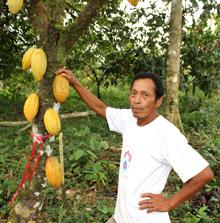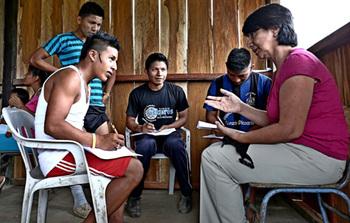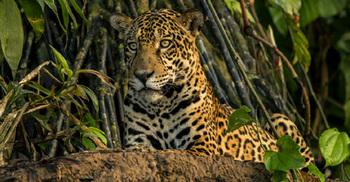Context
Yasuni Biosphere Reserve in Ecuador‘s northern Amazon region covers an area of 27,400 square kilometres. With its unparalleled flora and fauna, it ranks as one of the most species-rich places in the world. In the 10,220 square kilometre Yasuni National Park alone, which is part of the biosphere reserve‘s core zone, there are 1,344 different species of fauna and over 2,700 species of flora. The region also has extraordinary cultural diversity: in addition to the mestizo population, indigenous peoples such as the Huaorani, Shuar and Quechua also live there, as do the Tagaeri and Taromenane tribes which choose to live in isolation.
Permits to drill for oil have been awarded for about half of the park’s land area and 65 per cent of the biosphere reserve. As a result, water and soil have in places been contaminated by toxic waste from the oil extraction process. There has been massive degradation along the access roads to the oil fields due to deforestation and illegal hunting. This is also causing social conflicts.
Objective
The local population and government and non-governmental organisations contribute to the protection and sustainable development of the Yasuní Biosphere Reserve.


